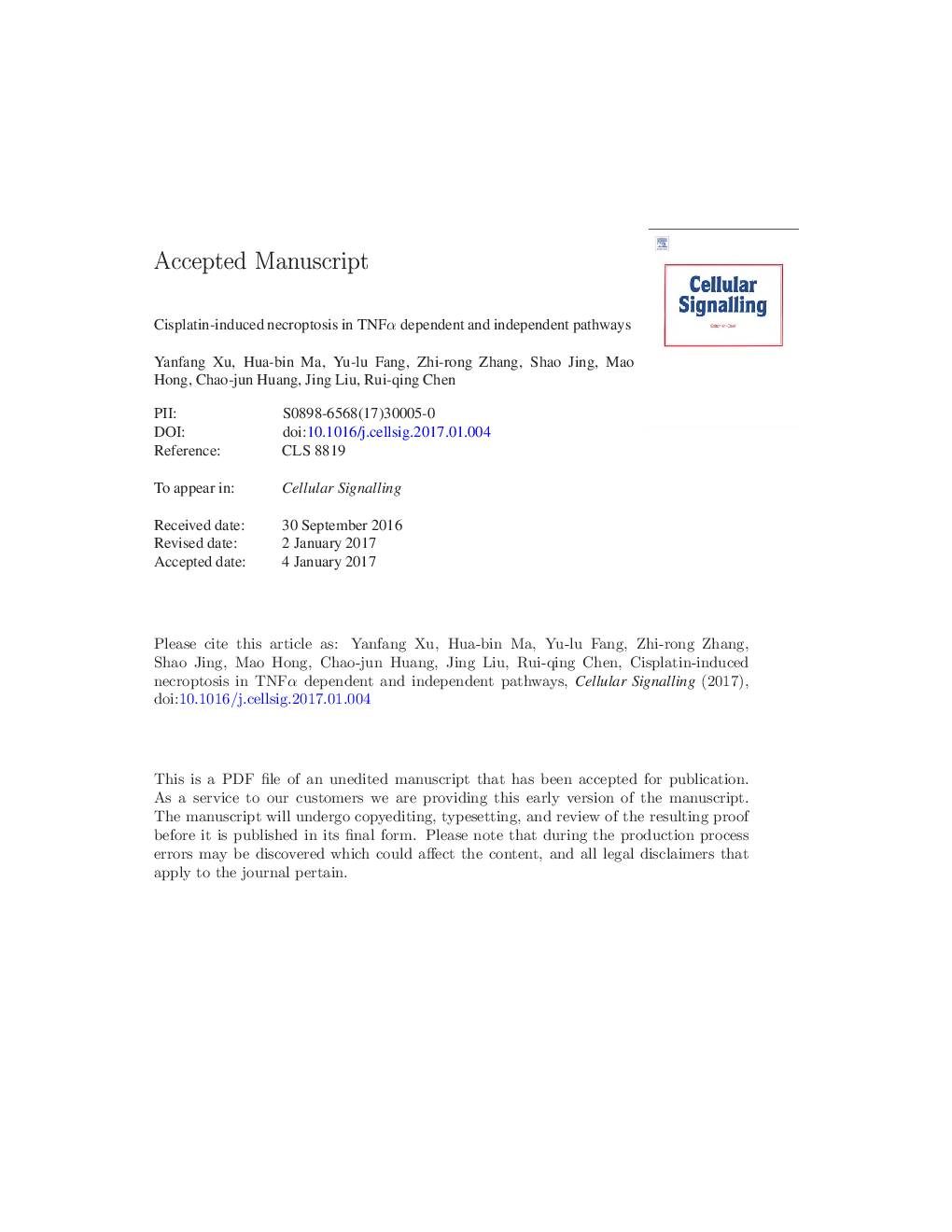| Article ID | Journal | Published Year | Pages | File Type |
|---|---|---|---|---|
| 5509397 | Cellular Signalling | 2017 | 41 Pages |
Abstract
Cisplatin is a chemotherapeutic drug for treatment of many solid tumors. It has been shown to induce apoptosis and/or necrosis in different types of cancer cells. However, the underlying mechanisms remain elusive. In this study, we provide evidences that cisplatin induces necroptosis in receptor-interacting protein 3 (RIP3)-expressing cell lines, but not in cell lines lacking RIP3 protein expression. Deficiency of core components of necroptotic pathway, RIP1, RIP3, or mixed lineage kinase domain-like protein (MLKL) blocked cisplatin-induced cell death in L929 cells. This phenomenon is dependent on RIP1/RIP3/MLKL necrosome formation and translocation to mitochondria-associated membrane (MAM), but only partially via autocrine production of tumor necrosis factor α (TNFα). Moreover, we demonstrate that the mitochondrial permeability transition pore opening (mPTP) opening and reactive oxygen species (ROS) generation is a critical downstream event of the formation of necrosome in cisplatin-induced necroptosis, which is TNFα independent. Deficiency of cyclophilin-D (CypD) partially reduced cisplatin-induced cell death, indicating CypD mediated-mPTP opening plays an important role during cisplatin-induced necroptosis. Both deletion of CypD and TNFα completely blocked cisplatin-induced cell death, suggesting that cisplatin could induce necroptosis through TNFα dependent and independent pathway. These findings provide new insight into the molecular mechanisms underlying cisplatin-induced necroptosis.
Keywords
Related Topics
Life Sciences
Biochemistry, Genetics and Molecular Biology
Biochemistry
Authors
Yanfang Xu, Hua-bin Ma, Yu-lu Fang, Zhi-rong Zhang, Jing Shao, Mao Hong, Chao-jun Huang, Jing Liu, Rui-qing Chen,
